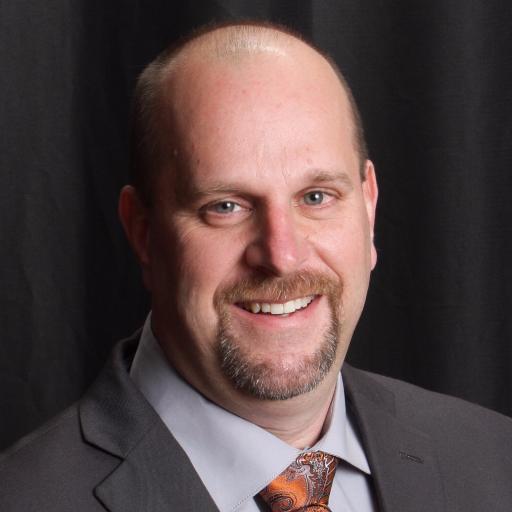"All learning environments and formats designed to help the learning needs of any student should be celebrated and acceptable." - Board District 2 Candidate Erica Vilardi-EspinosaOn his first day on the job, the LAUSD's new Superintendent, Alberto Cavalho, sent a message to the "Los Angeles United Family." It set a tone that would be expected as he thanked his predecessor, Interim Superintendent Megan Reilly, for her stewardship of the district and thanked students, colleagues, and families for their sacrifices during the pandemic. He then set his focus on the future. This is where he stumbled with the inclusion of one word that served to exclude the most vulnerable of the LAUSD's population.
In a school district of hundreds of thousands of students, there are a significant number of children with severe special education needs. This includes children who are not pursuing a high school diploma but will instead receive a certificate of completion at the end of their LAUSD journey. Rather than mastering algebraic equations or chemistry formulations, these are the students who achieving their full potential involves becoming as independent as their abilities allow them to. This is accomplished with the help of very dedicated teachers and other support staff in environments like special day classes, Career Transition Centers (CTC), and special education centers.
The stigmatization of learning centers tailor-made for those with severe special education needs has been a constant problem within the LAUSD, even among those who are supposed to be their advocates. Knowing about the constant battle to keep special education centers from being shut down, I asked representatives of the Special Education Department at a Community Advisory Committee (CAC) meeting last year the following question:
I want to know why when we are talking about inclusion we are always talking about bringing kids with special education needs into the general education environment? There are some great special education programs, especially for kids with severe special education needs. Instead of protecting these valuable programs, we have a history of looking to shut them down in favor of mainstreaming the students in general education settings. Why don't we instead bring general education students into these environments? For example, putting a magnet program on a Special Education Campus for students who want to pursue careers in this field.
The response from the district's bureaucrats was not promising. First, they attempted to justify the closure of special education centers by stating that these children will be integrated into the community after high school so they should not be educated in protective environments. If we approached general education in the same manner, typical students would do their work in cubicles or assembly lines with little interaction from the teacher. Instead, we use a classroom setting that is designed to eventually transition them into the work world. Children within special education also deserve to learn in an environment that will best set them up for success in the future.
The idea for a magnet program centered on careers in special education was also shot down with the excuse that teachers with certification in special education are not credentialed to teach general education. It is, therefore, "a far easier flow for us to put students with disabilities in general education settings."
First, the district should not be doing what is easier, but what works best for the students. Second, the premise is entirely wrong. While not all special education teachers are credentialled in general education, many are. Regardless, the credentials of the teacher are not affected by the building that they teach in; it is only a matter of where existing teachers are assigned. Teachers with a general education credential can be assigned to teach these students on a special education campus.
With this interaction in mind, I was interested in knowing the views of candidates in June's school board elections. To find out, I sent the following questions about forced mainstreaming and the alternatives to this practice to the email on file with the Ethics Commission for every candidate who is currently collecting signatures to appear on the ballot:
- While inclusion and mainstreaming have benefitted many children with special education needs, these programs are not suitable for all children. For many children, Special Education Centers provide the best option for helping them reach their full potential. Do you commit to keeping these schools fully funded and the option of attending made available to parents during the IEP process?
- To ensure that children enrolled in Special Education Centers have exposure to their typical peers, do you commit to ensuring that magnet programs are included on these campuses? These magnets would serve children who are interested in pursuing careers in special education.
- How would you support programs like Peer Buddies that find innovative ways to ensure that children with severe special education needs are integrated with their general education classmates even if they are pursuing an alternative curriculum.
- Do you commit to ensuring that all members of the staff at the Division of Special Education support children with moderate to severe special education needs and prohibit them from stigmatizing special day classes and special education centers?
- Do you commit to removing any targets limiting the number of children enrolled in special day classes?
The respondents were also invited to include any additional thoughts that they had on the subject.
The two people who should know the most about the District's special education policies, incumbents Kelly Gonez and Nick Melvoin, did not bother to respond to the inquiry. Gonez's lack of interaction should not be surprising given that one of her first acts upon becoming President of the school board was to ensure that the Special Education Committee would not be able to meet. Even as these students were the most affected by the shutdown of the schools, Gonez would not give their advocates a place to be heard.

The face of Melvoin's injustice: A CTC West student and his worried mother
(Image by Tracy Abbott Cook) Details DMCA
Not surprisingly, three of the responses that I did receive came from Board District 2. These candidates are seeking to replace Monica Garcia, who is being forced from office due to term limits. Garcia has been a long-time opponent of special education, going as far as complaining that funds spent on these programs interfere with the ability to "serve our own kids".
In contrast, candidates Erica Vilardi-Espinosa, Raquel Zamora, and Miho Murai all provided answers to my questions that indicated a high level of support for special education programs. I found all of their answers to be well thought out and carefully considered.
In District 6, one of Gonez's opponents, Marvin Rodriguez, also provided his thoughts on "Community Through Inclusion and Collaboration." His "new vision of public education" includes building communities of resources and support for our students in all our district's schools," including those devoted to serving those with severe special education needs.
(Note: You can view every article as one long page if you sign up as an Advocate Member, or higher).







